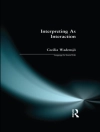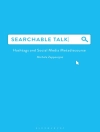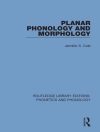This book provides an introduction to the basic principles of discourse research, offering practical research strategies for doing discourse analyses in the social sciences. The book includes guidance on developing a research question, selecting data and analyzing it, and presenting the results. The author has extensive practical experience in the field of discourse research and shows, throughout, how the methods suggested are compatible with numerous research questions and problems in sociology, cultural, political and social studies and related disciplines.
Table of Content
The Current Relevance of Discourse Research
Preamble
Collective Orders of Knowledge and Discourses
Approaches in Discourse Research
The History of the Term ′Discourse′
Discourse Analysis
Discourse Linguistics and (Corpus-based)
Critical Discourse Analysis and
Kritische Diskursanalyse
Culturalist Discourse Research
Discourse Theories
Sociology of Knowledge Approach to Discourse
Further Disciplinary Developments
Summary
The Research Process
Concepts
Questions
General Foundations
Doing Discourse Research
Getting Started
The Exploration of the Field of Investigation
Selection of Data
Other Data Formats and Methods
The Detailed Analysis of Data
The Situational and Material Nature of a Statement
Formal and Linguistic-Rhetorical Structure
The Interpretative Analytics of Contents
From Detailed Analysis to Overall Results
From Utterances via Statements to Discourse and Beyond
Interpretation and Presentation of Results
Concluding Remarks
About the author
Reiner Keller (Dr. Phil) is Professor of Sociology at Augsburg University (Germany) since 2011. He was a member of the executive board of the German sociological association from 2015 to 2019 and chaired its sociology of knowledge section from 2011 to 2016. Currently, he is a codirector of the Jakob Fugger Center for Transnational Studies at Augsburg university and coeditor of the Journal for Discourse Research. His research centres on sociology of knowledge and culture, discourse studies, sociological theory, qualitative methods, risk and environment, and French sociology. He has published extensively in these areas. Keller received the German sociological association′s best textbook in sociology award in 2013–2014 for ‘The Interpretive Paradigm.’ Further books include monographies on waste policy discourses in France and Germany, the sociology of knowledge approach to discourse, Michel Foucault. See http://www.uni-augsburg.de/keller and http://kellersskad.blogspot.de












